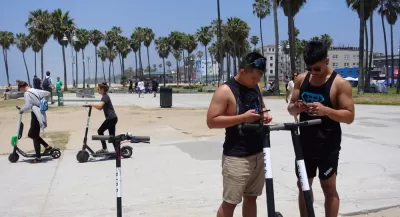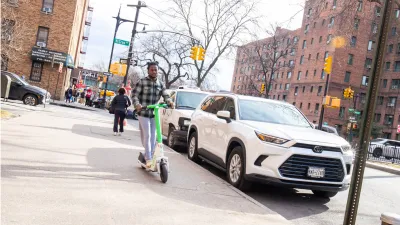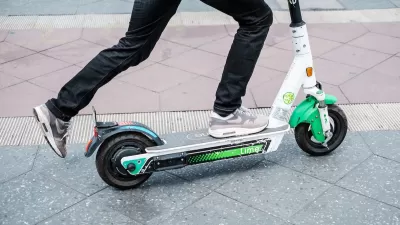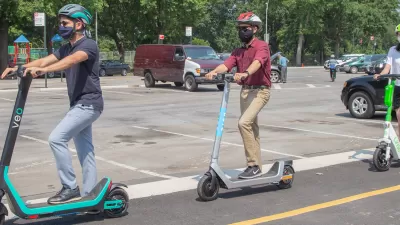After years of outright banning them, New York City is finally giving e-scooters a chance to operate on its streets.

Three years after Bird first dropped its fleet of e-scooters in Santa Monica and disrupted the shared mobility industry, New York City's first electric scooter pilot programs, scheduled to roll out next spring, will bring e-scooters to several boroughs(not including Manhattan). The city hopes this new micro-mobility option will fill gaps in areas not served by a subway or bus and reduce the need for short car trips.
A key question, writes Justin Davidson, is whether the city will benefit from its late entry into the e-scooter game. When the two-wheelers were first introduced in 2017, city leaders were blindsided by massive fleets of free-floating scooters that appeared on their streets practically overnight. Rather than scrambling to create post-hoc rules for a brand new form of mobility, New York City has, in theory, had the time to design a regulatory framework that avoids the problems faced by other cities, holds scooter operators accountable, and integrates e-scooters effectively and equitably into the city's transit ecosystem.
Cities have always had to adjust to new modes of transportation. Now, dense urban neighborhoods would benefit from improved public transit options, micro-mobility, and safer infrastructure, according to the article. "Two-buck-a-ride scooters won’t save the world, but they just might persuade a lot of recalcitrant, habitual drivers of the need for protected bike lanes."
FULL STORY: The E-Scooter Is Part of a Balanced Transit Diet

Planetizen Federal Action Tracker
A weekly monitor of how Trump’s orders and actions are impacting planners and planning in America.

San Francisco's School District Spent $105M To Build Affordable Housing for Teachers — And That's Just the Beginning
SFUSD joins a growing list of school districts using their land holdings to address housing affordability challenges faced by their own employees.

The Tiny, Adorable $7,000 Car Turning Japan Onto EVs
The single seat Mibot charges from a regular plug as quickly as an iPad, and is about half the price of an average EV.

Seattle's Plan for Adopting Driverless Cars
Equity, safety, accessibility and affordability are front of mind as the city prepares for robotaxis and other autonomous vehicles.

As Trump Phases Out FEMA, Is It Time to Flee the Floodplains?
With less federal funding available for disaster relief efforts, the need to relocate at-risk communities is more urgent than ever.

With Protected Lanes, 460% More People Commute by Bike
For those needing more ammo, more data proving what we already knew is here.
Urban Design for Planners 1: Software Tools
This six-course series explores essential urban design concepts using open source software and equips planners with the tools they need to participate fully in the urban design process.
Planning for Universal Design
Learn the tools for implementing Universal Design in planning regulations.
Smith Gee Studio
City of Charlotte
City of Camden Redevelopment Agency
City of Astoria
Transportation Research & Education Center (TREC) at Portland State University
US High Speed Rail Association
City of Camden Redevelopment Agency
Municipality of Princeton (NJ)





























